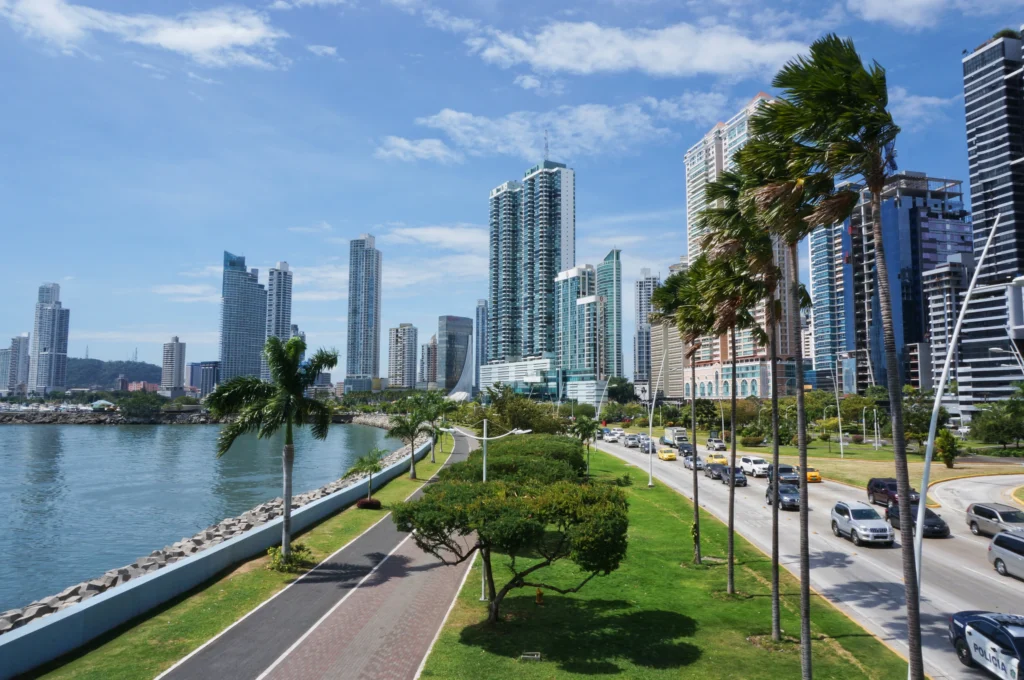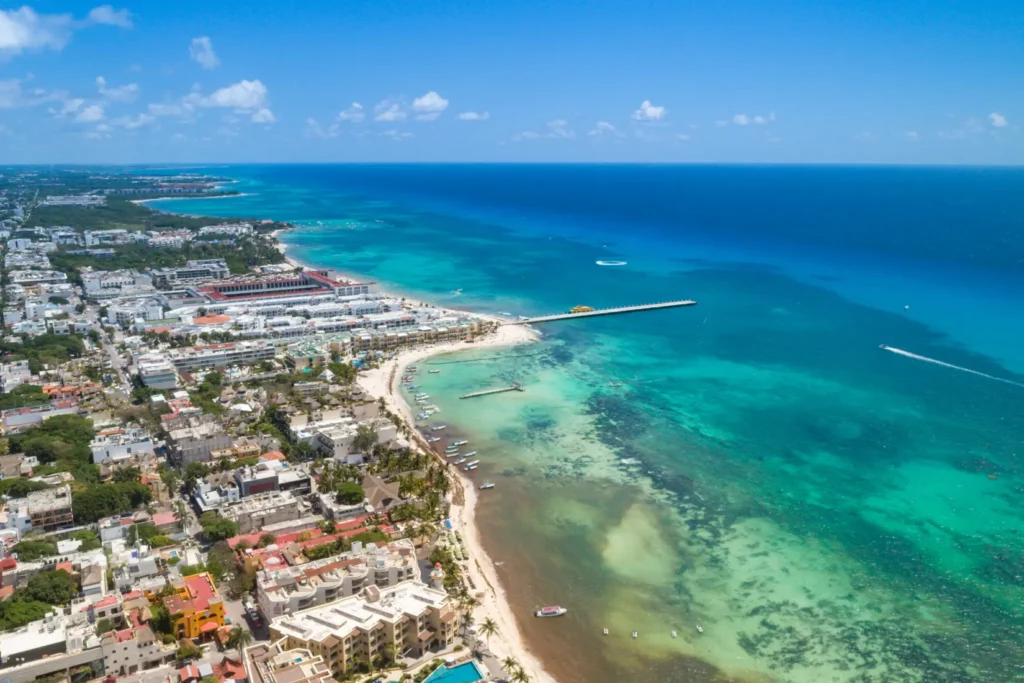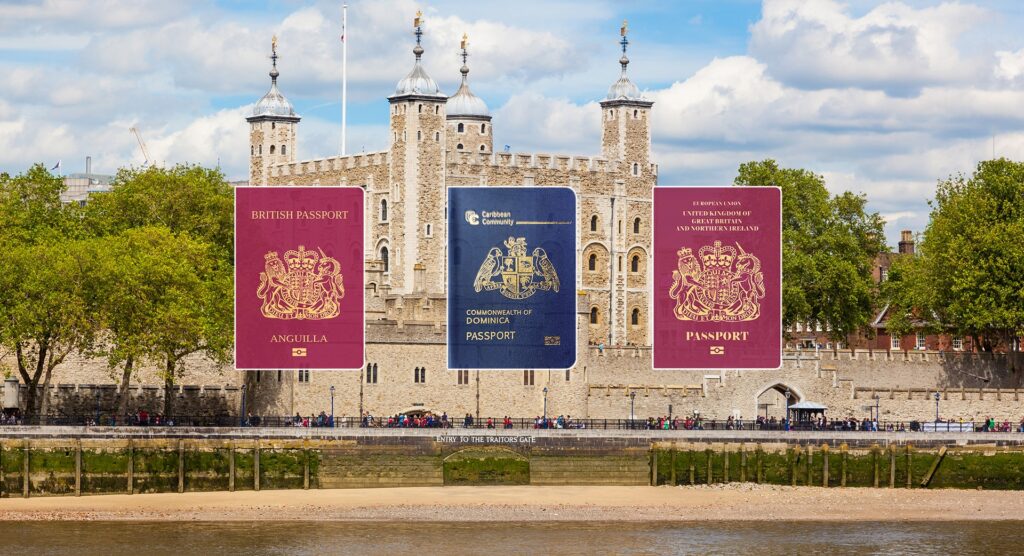If you’re wondering how to stop paying taxes legally, understanding the complexities of tax legislation in each country may seem daunting. However, with the right guidance and a deep knowledge of the laws, it’s entirely possible to minimize—or even eliminate—your tax liabilities without breaking the law. The key is understanding your tax reduction options, getting advice on tax laws, and adopting strategies that leverage legal tax reduction methods. This is especially true if you are a wealthy family or investor willing to relocate to a more tax-friendly country. For instance, the Cayman Islands would be an example of a popular Caribbean tax haven. As we explore this topic, remember that careful and informed planning is essential to ensure all methods comply with legal standards.
The journey toward legal tax minimization offers a range of possibilities that can lead to substantial financial benefits. By using legitimate tax avoidance measures, you’re engaging in practices that use the tax system within one or multiple jurisdictions to your advantage. This might involve investing in tax-efficient vehicles, taking advantage of allowable tax credits and deductions, or timing your income to benefit your financial situation. To effectively navigate these options, it’s crucial to stay updated on current tax laws and work with tax professionals who can offer advice tailored to your personal financial situation. This proactive approach keeps you within legal limits and optimizes your financial health.
Understanding Tax Laws

Importance of Paying Taxes
Taxes are the backbone of any country’s economy, providing vital funds for public services like healthcare, education, and infrastructure. When you contribute your fair share, you invest in society’s future. It’s not just about compliance; it’s a civic duty that supports national growth and development. For instance, the NHS relies heavily on taxpayer money to provide healthcare services across the UK. Without these contributions, maintaining such essential services would be challenging.
Moreover, taxes play a crucial role in redistributing wealth and reducing inequalities. Progressive taxation ensures that those who earn more contribute more, helping to fund social welfare programs that benefit everyone. This system aims to create a more balanced and equitable society.
- Public Services: Taxes fund schools, hospitals, and roads.
- Social Welfare: They support unemployment benefits and pensions.
- Economic Stability: Through fiscal policies funded by tax revenue.
Understanding where your taxes go can transform how you view this obligation. It’s not merely a deduction from your paycheck but a contribution to collective well-being and prosperity.
Legal Ramifications of Tax Evasion
Tax evasion is illegal and carries severe consequences if caught. It is crucial to distinguish between avoiding taxes legally through deductions or credits and evading them. The latter involves deliberately misrepresenting or concealing information from tax authorities to reduce one’s tax liability.
Legal actions against tax evaders can include hefty fines or even imprisonment. For example:
| Country | Fines for Non-Payment | Penalties for Tax Evasion | Dollar Amount Fines | Interest Rate on Tax Owing |
|---|---|---|---|---|
| United States | Failure to pay penalty: 0.5% of unpaid taxes per month | Up to $100,000 for individuals, $500,000 for corporations, and/or up to 5 years imprisonment | $100,000 – $500,000 | Variable, approximately 3% to 5% annually |
| United Kingdom | Interest on unpaid taxes, plus a penalty of up to 100% of the tax owed | Unlimited fine and/or up to 7 years imprisonment | Variable | 2.6% annually |
| Germany | Late payment penalty of 1% of the outstanding tax per month | Fine up to 5 times the evaded tax or imprisonment up to 10 years in severe cases | Variable | Approximately 6% annually |
| France | Late payment interest plus a 10% surcharge | Up to 75% of the undeclared amount and imprisonment up to 5 years | Variable | Approximately 0.2% per month |
| Canada | 5% of your balance owing plus 1% of your balance owing for each full month your return is late, to a maximum of 12 months | Up to 200% of the evaded tax and up to 5 years in prison | Variable | 5% to 6% annually, compound daily |
| Australia | General interest charge on unpaid taxes and a penalty of up to 75% of the tax shortfall | Fine up to 200% of the tax evaded and/or up to 10 years imprisonment | Variable | Approximately 7% annually |
| New Zealand | 1% initial penalty plus additional 4% if unpaid after 7 days, and 1% monthly thereafter | Penalties up to 150% of the evaded tax and prosecution | Variable | 8% annually |
| The Netherlands | Late payment penalty of up to 5% of the outstanding tax | Fines up to 300% of the evaded tax and/or imprisonment | Variable | Approximately |
These penalties highlight the seriousness with which governments view tax evasion. In addition to legal repercussions, those found guilty often face reputational damage that can significantly impact their professional and personal lives.
It’s also worth noting that countries increasingly cooperate on international tax matters through agreements like the Common Reporting Standard (CRS). These initiatives aim to combat cross-border tax evasion by sharing financial account information among participating countries.
Being aware of these laws helps ensure compliance while navigating legal ways to minimise your tax liability effectively—like making use of allowable deductions or understanding different taxation levels based on income brackets correctly aligns with both legal requirements and ethical standards.
Exploring Tax Mitigation Strategies

Tax Deductions
Tax deductions are a powerful way to reduce your taxable income legally. Essentially, they allow you to subtract certain expenses from your total income, meaning you’ll be taxed on a lower amount. Common examples include contributions to retirement accounts, mortgage interest, and charitable donations. It’s crucial to keep thorough records of these expenditures as proof for tax authorities.
- Retirement Contributions: Money put into pension plans can often be deducted.
- Charitable Donations: Gifts given to registered charities may qualify for deductions.
- Business Expenses: Self-employed individuals can deduct costs directly related to their business.
Understanding what qualifies can significantly impact your financial health come tax season.
Offshore Companies
Offshore companies in jurisdictions with favourable tax laws can offer legitimate ways to minimise taxes. Individuals and corporations can benefit from reduced tax liabilities by setting up a business entity in countries with low or zero taxation rates. However, it’s vital to navigate these waters carefully due diligence is necessary to comply with all legal requirements and avoid penalties.
Countries popular for such setups include:
- Bermuda
- Cayman Islands
- Luxembourg
These locations provide attractive corporate structures but always consult with a tax professional before proceeding.
Life Insurance
Life insurance policies not only offer peace of mind but also present opportunities for tax mitigation. In some jurisdictions, premiums paid on life insurance can be deductible or offer tax-deferred growth on the cash value within the policy. Moreover, benefits received upon death are usually tax-free for the beneficiaries. This makes life insurance an appealing component of a comprehensive financial strategy focused on minimising taxes.
Key points about life insurance and taxes:
- Premiums might be deductible.
- Cash value grows tax-deferred.
- Death benefits are generally free from income tax.
Choosing the right policy could yield significant long-term advantages.
Tax Credits
Unlike deductions that reduce taxable income, tax credits directly decrease the tax owed dollar-for-dollar. They’re typically offered as incentives for specific behaviours like investing in renewable energy sources or furthering one’s education. For instance, installing solar panels or pursuing higher education may make you eligible for substantial credits that could drastically lower your final bill come taxation time.
Leveraging these credits requires staying informed about current incentives available within your jurisdiction—often making them an underused yet highly effective tool in reducing overall taxation burdens effectively and legally.
Becoming a Non-Resident for Tax Purposes

Seeking to minimise your tax liability by becoming a non-resident for tax purposes is a strategy that’s gained traction among savvy taxpayers. This method hinges on the rules and regulations set forth by your home country, which dictate how individuals are classified for taxation. If you spend less than a certain number of days in your home country—often around 183 days in a year—you might qualify as a non-resident for tax purposes.
Understanding the specific criteria your country uses to determine tax residency is crucial. These can include factors such as:
- The amount of time you spend in the country within a fiscal year
- Where your “centre of vital interests” lies (e.g., family, employment)
- Whether you have accessible accommodation in the country
Adopting this status can lead to significant tax advantages, especially if you move to or earn income from countries with lower tax rates. However, planning meticulously and possibly consulting with a tax professional is essential. Missteps could not only negate potential benefits but also result in legal repercussions.
Countries like Monaco, the Bahamas, and the UAE are renowned for their favourable tax regimes for expatriates and often attract individuals looking to become non-residents of their home countries for tax purposes. Here’s an example: moving from a high-tax country like Sweden (with an income tax rate upwards of 50% for high earners) to Dubai, where personal income is not taxed at all, could drastically reduce one’s taxable income.
However, it’s important to note that changing your tax residency isn’t solely about spending fewer than 183 days in your home country. You must typically prove that you’ve established substantial ties elsewhere—this could involve demonstrating employment overseas, owning property in another country or having immediate family members living abroad.
In essence embarking on this path requires thorough research and careful consideration. It’s not just about finding loopholes but aligning with legal frameworks that recognise global mobility as part of modern life while ensuring compliance with international taxation principles.
Popular Tax-Friendly Jurisdiction
Singapore

Singapore stands as a global beacon for business and investment, thanks in part to its strategic position in Asia and a welcoming economic policy that includes one of the most competitive corporate tax rates globally—capped at 17%. This attractive rate is bolstered by a plethora of tax incentives aimed at spurring entrepreneurship and innovation, with significant tax exemptions available to newly established companies that drastically reduce their taxable income for the first three years. Moreover, the absence of a capital gains tax further enhances Singapore’s appeal as a prime destination for investors looking to maximize returns on investments and engage in regional expansion strategies.
Beyond its financial incentives, Singapore’s geopolitical stability, rigorous legal framework, and reputation for transparency and efficiency in business practices make it a top choice for corporations and high-net-worth individuals seeking a reliable hub for their operations. Additionally, Singapore’s extensive network of free trade agreements and double tax treaties provides businesses with greater access to markets across the globe, simplifying international trade and investment activities.
Cayman Islands

A quintessential locale for offshore banking and financial services, the Cayman Islands represent more than just a secluded paradise; they are a strategic financial center offering a zero-tax regime—no direct corporate, income, or capital gains taxes. This environment is particularly favorable for hedge funds, private equity firms, and multinational corporations focused on optimizing their tax positions without the encumbrance of complex regulatory hurdles. The jurisdiction’s robust legal framework is specifically tailored to support the seamless operation of investment funds and financial institutions, enabling effective global financial maneuvering.
The appeal of the Cayman Islands extends beyond taxes, as the region offers strong confidentiality laws that attract businesses and investors seeking privacy. This, combined with advanced banking infrastructure and political stability, creates an ideal environment for wealth management and asset protection. The islands’ commitment to maintaining a flexible and business-friendly environment continually attracts a global clientele looking to benefit from its fiscal advantages and investment opportunities.
United Arab Emirates

The UAE, and particularly Dubai, has emerged as a magnet for global talent and investment, drawing in a diverse international community with its virtually zero-tax policy on personal and corporate incomes (with exceptions for oil companies and foreign banks) and a modest VAT rate introduced in 2018. The low tax burden is complemented by specialized free zones throughout Dubai that offer 100% foreign ownership and zero corporate or personal income taxes, making these zones highly attractive for businesses in technology, finance, and media sectors.
Dubai’s allure is further magnified by its high standard of living and significant investments in world-class infrastructure, which position it as a global hub for commerce and lifestyle. The city’s strategic location serves as a gateway between the East and the West, providing businesses with unmatched access to emerging and established markets. For expatriates, the combination of tax incentives, safety, and a cosmopolitan lifestyle offers a compelling blend of benefits, making Dubai not just a place to invest, but a desirable location to reside.
Malaysia

Malaysia’s tax system is strategically designed to attract foreign businesses and investors, particularly in high-tech industries. The MSC Malaysia status grants technology companies and startups lucrative benefits such as a 100% investment tax allowance and eligibility for research and development grants, which are particularly attractive for fostering innovation and growth. Residents enjoy low progressive personal income tax rates, while non-residents benefit from a flat tax rate on Malaysian-sourced income, enhancing the country’s appeal as a financially advantageous locale for expatriates and international businesses.
Positioned at the heart of ASEAN, Malaysia is not only a cultural and economic bridge between Asia’s major economies but also offers a gateway to the massive ASEAN market. Its comprehensive network of trade agreements and strategic geographic location enhance its attractiveness as a business base, providing companies with a competitive edge in accessing broad Asian markets. For affluent families, Malaysia offers a blend of modernity and traditional culture, high-quality education systems, and a high standard of living, making it a favored destination for those seeking a balanced expatriate experience.
The Bahamas

The Bahamas stands as a premier destination for affluent families and investors, primarily due to its policy of not levying personal income tax, capital gains tax, or inheritance tax. Such a tax regime makes it especially appealing for those seeking to maximize their wealth preservation and enjoy financial privacy in a picturesque setting. The islands offer a variety of residency options, such as the Permanent Residency obtained through property investment, which further attracts high-net-worth individuals looking for a stable and attractive investment climate coupled with a high quality of life.
Additionally, the Bahamas’ proximity to major markets like the United States enhances its appeal as a convenient luxury retreat combined with substantial financial benefits. The local real estate market presents ample opportunities for investment that align with a lifestyle of leisure and luxury, making it an ideal locale for those who value both fiscal advantages and accessibility.
Panama

Panama is distinguished by its territorial tax system, which taxes individuals and companies only on the income earned within the country. This policy ensures that all foreign-sourced income remains tax-free, providing a significant advantage to international businesses and expatriates. The country also offers a range of visas, such as the Friendly Nations Visa, which simplifies the residency process for citizens from selected countries, enhancing Panama’s attractiveness as a relocation destination.
Panama’s strategic role as the gateway to the Americas, with its famous Panama Canal and advanced logistics capabilities, makes it a critical node for international trade and business operations. The nation’s robust banking sector, coupled with favorable corporate laws, makes it an optimal choice for businesses looking to establish a presence in Latin America while managing their global operations efficiently.
Uruguay

Uruguay presents a compelling case for tax residency with its favorable tax policies, including low income tax rates and significant tax holidays for new residents. This South American nation is known for its political stability, high standard of living, and progressive social policies, which make it an attractive destination for families and investors seeking a safe and stable environment. Uruguay’s tax residency program requires individuals to spend a certain amount of time in the country, but this is relatively flexible, allowing residents to enjoy the benefits of tax optimization without the stringent presence requirements found in other jurisdictions.
Furthermore, Uruguay’s respect for privacy and strong rule of law contributes to its reputation as a secure and discreet place for managing personal wealth. The country’s inclusive approach to foreign investment and its strategic location as a commercial and cultural bridge within South America enhance its appeal as a base for both living and conducting business across the continent.
Each of these jurisdictions offers a unique set of advantages, tailored to the needs of affluent families and investors. These benefits go beyond fiscal incentives, extending into strategic geographical positions, lifestyle considerations, and stable political environments, thereby providing solid platforms for both personal enrichment and robust investment growth.
Corporate vs Personal Tax
Corporate tax is levied on the profits of corporations and other businesses, whereas personal tax, or income tax, is applied to an individual’s earnings such as wages and investment income. Both taxes serve as essential revenue sources for governments but differ in their administration and impact on economic behavior.
Low-Tax Corporations Worldwide
Here are ten jurisdictions known for their low corporate tax rates, making them attractive for business incorporation and investment:
| Country | Corporate Tax Rate | Capital Gains Rate | Interest Earned Rate | Tax Treaty Network |
|---|---|---|---|---|
| Ireland | 12.5% | 33% | Variable | Extensive |
| Panama | 25% | 10% on certain transactions | Variable | Moderate |
| Singapore | 17% (with potential reductions) | 0% on long-term holdings | Variable | Extensive |
| Bulgaria | 10% | 0% | 10% | Moderate |
| Cyprus | 12.5% | 0% | 0% for non-residents | Extensive |
| Barbados | 5.5% to 3% | 0% | 0% | Extensive |
| Cayman Islands | No direct corporate taxes | 0% | 0% | Limited |
| Bermuda | No corporate income tax | 0% | 0% | Limited |
| Switzerland | 12% to 22% | Variable by canton | Variable by canton | Extensive |
| United Arab Emirates | 0% for most businesses | 0% | 0% | Emerging |
Attractive Offshore Jurisdictions to Register a Company
- British Virgin Islands (BVI): Known for its regulatory framework favorable for offshore companies, the BVI offers no direct corporate taxes, capital gains taxes, or inheritance taxes, making it a popular choice for business owners seeking asset protection and privacy.
- Panama: Panama’s corporate environment attracts businesses with its territorial tax system, where income generated outside of Panama is not taxed. The straightforward incorporation process and moderate tax treaty network further enhance its appeal for international business.
- St. Lucia: St. Lucia offers competitive corporate tax rates and no capital gains tax, appealing to foreign investors. The island also provides incentives such as no inheritance taxes and a growing tax treaty network, enhancing its status as an offshore financial center.
- St. Kitts and Nevis: Known for its citizenship by investment program, St. Kitts and Nevis also boasts a zero capital gains tax regime. Despite a higher corporate tax rate, generous tax holidays for qualified investments make it attractive for new business ventures.
- Cayman Islands: As one of the most well-known tax havens, the Cayman Islands offer no direct corporate taxes, capital gains taxes, or withholding taxes. Its regulatory framework is specifically designed to attract hedge funds, financial institutions, and high-net-worth individuals.
- Luxembourg: Although its corporate tax rate is relatively higher, Luxembourg remains attractive due to its sophisticated financial services sector, extensive double tax treaty network, and favorable regulations for holding companies.
- Malaysia: Malaysia appeals to businesses with its competitive corporate tax rate and the absence of capital gains tax on most assets. The robust financial infrastructure and a broad network of tax treaties make it a strategic location for business expansion in Asia.
Country of Tax Residency

Popular Low-Tax Countries to Secure Tax Residency
- United Arab Emirates: Known for not levying personal income taxes, the UAE offers a high quality of life and has several residency programs that attract professionals and entrepreneurs from around the world.
- Singapore: With a top personal tax rate of about 22%, and numerous incentives for businesses and individuals, Singapore remains a hub for international trade and finance with robust economic policies.
- Hong Kong: Offers a territorial tax system where only income earned within the city is taxed, at rates up to 17%. Hong Kong is a major financial center with a significant expatriate population.
- Malta: Provides favorable tax conditions, such as a maximum personal tax rate of 35% but with effective planning, expatriates can benefit from much lower rates. Malta also offers a residency program that provides tax optimization opportunities through rebates.
- Cyprus: Individuals can benefit from a 12.5% corporate tax rate and a personal tax regime that is favorable for expatriates, including a non-domiciled status which can significantly reduce tax on foreign income.
- The Bahamas: Continues to attract individuals with its no personal income tax policy. The country offers residency options that are attractive to retirees and investors looking for a tax-friendly jurisdiction.
- Cayman Islands: Known for having no direct taxes, such as no income tax, capital gains tax, or wealth tax, which makes it an ideal jurisdiction for wealth management structures.
- Antigua and Barbuda: Offers an attractive personal tax regime with no capital gains or inheritance taxes and a citizenship by investment program that provides tax residency along with other benefits.
- Panama: Features a territorial tax system where foreign income is not taxed. Panama also provides various residency programs tied to investment options that are popular among expatriates.
- Uruguay: Known for its favorable tax policies including a tax residency program with a low income tax rate for foreign income and significant tax holidays for new residents.
- Malaysia (MM2H program): Offers zero tax on foreign-sourced income for retirees under the Malaysia My Second Home program, which provides long-term residency permits to non-Malaysians.
- Andorra: Provides a highly competitive personal tax environment with a maximum tax rate of 10%. Known for its safe, low-crime environment, Andorra also offers residency programs that do not require you to spend the majority of your time within the country.
Understanding of Minimum Stay Requirements
Minimum stay requirements are crucial for establishing tax residency in a country and are often a pivotal part of tax planning, especially for high-net-worth individuals (HNWIs) and investors looking to minimize their global tax liability. These requirements vary significantly between countries, ranging from the commonly seen 183 days to far fewer in some jurisdictions, offering strategic advantages for tax planning.
Countries with Lower Minimum Stay Requirements
Certain countries offer lower minimum stay requirements, which can be particularly attractive for those looking to manage their tax residency without committing to long periods in one location. For instance:
Countries with Lower Minimum Stay Requirements
Certain countries offer lower minimum stay requirements, which can be particularly attractive for those looking to manage their tax residency without committing to long periods in one location. For instance:
- The Bahamas: There is a 90-day minimum requirement to be considered a tax resident. Instead, residency can be established through significant personal presence and investments, such as owning a home.
- Cayman Islands: Similar to the Bahamas, the Cayman Islands has a strict 90-day residency requirement. Establishing tax residency here typically involves proving a substantial presence through property ownership or business activities rather than counting days.
- United Arab Emirates: To maintain tax residency in the UAE, a 90-day minimum stay is required. However, it is generally tied to possessing a residency visa, which can be obtained through employment, business investment, or property ownership. This allows residents to travel in and out of the country with flexibility.
- Malaysia: Under the Malaysia My Second Home (MM2H) program, there is no minimum stay requirement to maintain the visa. However, the standard tax residency rule of more than 182 days applies for other purposes, leaving a grey area here.
- Paraguay: Paraguay requires only a minimal physical presence, often just a few days per year, to maintain permanent residency. This can be highly beneficial for tax planning, especially since Paraguay taxes only Paraguayan-sourced income unless foreign income is remitted to the country.
These jurisdictions are popular among those who prefer flexibility in their location and travel, allowing for significant movement without compromising their tax residency status.
Special Programs for HNWIs and Investors
Several countries have developed specific programs that cater to HNWIs and investors, offering simplified and advantageous tax regimes in exchange for investment or a flat tax payment. These programs are designed to attract wealth and stimulate local economies while providing tax efficiency for participants:
- Anguilla: Offers a straightforward tax regime where HNWIs can opt for a $75,000 flat tax. This option simplifies the tax process and is an attractive choice for those who prefer predictable fiscal obligations. It requires the individual to demonstrate substantial links to the island, typically through property investment or business development.
- Antigua and Barbuda: Provides a favorable tax program for HNWIs, where a flat tax of $20,000 per year can establish tax residency. This program is part of the country’s efforts to attract wealthy individuals who can contribute to the local economy. Participants are required to spend a minimum of 45 days in the country annually, which is considerably lower than the standard 183 days found in many other jurisdictions.
These specialized programs not only reduce the administrative burden associated with managing global income taxes but also offer a clear, predictable tax landscape. This predictability is highly valued by investors and HNWIs who need to manage complex financial portfolios across multiple jurisdictions.
Conclusion
Understanding and navigating the minimum stay requirements and special tax residency programs requires careful planning and consideration of one’s lifestyle, business activities, and long-term residency goals. For those looking to optimize their tax situation, consulting with tax professionals who specialize in international taxation is crucial. These experts can provide tailored advice that aligns with both legal requirements and personal objectives, ensuring compliance and fiscal efficiency.
- Understand the Basics: Grasping the fundamentals of tax laws and regulations within your jurisdiction is paramount. Knowledge is power, and in this context, it’s financially empowering.
- Leverage Tax-Free Accounts: Investment in tax-free savings accounts (ISAs) or pensions can significantly reduce your taxable income. Maximizing contributions to these accounts secures your future and optimizes your current financial situation.
- Consider Relocation: For those with flexibility (especially non-US citizens), moving to areas with lower tax rates can be a drastic but highly effective method. Research thoroughly before making such a significant decision.
- Utilise Allowances: Ensure you take full advantage of all allowances and deductions. From charitable donations to energy-efficient investments, every little helps.
- Seek Professional Advice: Perhaps most crucially, consulting with a tax professional can unveil strategies tailored specifically to your financial landscape. Expert advice can help you navigate complex laws, ensuring you remain compliant while optimising your situation.
Tax planning is an essential element of managing your finances effectively. As legislation evolves, staying informed and adaptable will serve you well. Committing time now to understand how you can legally reduce your taxes ensures more of your hard-earned money stays where it belongs – with you.
Frequently Asked Questions (FAQ)
1. What is the difference between tax avoidance and tax evasion?
Tax avoidance involves legally structuring your finances to minimize the amount of taxes paid by taking advantage of the tax regime’s existing rules and incentives. This is considered lawful and prudent financial planning. On the other hand, tax evasion is illegal and involves deliberately misrepresenting or concealing information to reduce tax liabilities. This includes underreporting income, inflating deductions, or hiding money in undeclared offshore accounts.
2. How can I determine if an offshore jurisdiction is suitable for my business?
When considering an offshore jurisdiction for business, assess factors such as the political and economic stability of the country, legal environment, existing tax treaties, corporate tax rates, and any potential legal implications for your type of business. It is also crucial to consider the jurisdiction’s reputation to avoid areas perceived as tax havens, which could impact your business negatively. Consulting with a tax professional or legal advisor specialized in international business is highly recommended.
3. Are there any ethical considerations involved in minimizing tax liabilities?
Yes, while minimizing tax liabilities within legal boundaries is a standard practice, it’s essential to consider the broader ethical implications. These include the impact on public services funded by taxes and the societal perception of your business practices. Ethical tax planning involves balancing lawful tax minimization strategies while contributing fairly to the community and maintaining a positive corporate image.
4. What should I do if the tax laws change in a country where I have business interests?
Subscribe to updates from international tax professionals and regulatory bodies to stay informed about the latest tax law changes in countries where you have business interests. Regular consultations with tax advisors are crucial to adjust your business and tax strategies in response to the changes. Proactive planning and flexibility can help mitigate the impact of unfavourable tax law changes on your business operations and financial health.
5. How can establishing tax residency in a low-tax country benefit me personally?
Establishing tax residency in a low-tax country can significantly reduce your tax liabilities on global income, depending on the country’s tax laws. Benefits often include reduced or zero taxation on certain types of income, such as foreign-sourced income, capital gains, and inheritances. However, meeting the country’s residency requirements is essential, maintaining compliance with international tax reporting standards, and ensuring that your tax strategies align with local and global tax obligations.
Learn More
Offshore Freedom™ is a boutique coaching and consulting firm that helps investors and entrepreneurs live and invest internationally. We help our clients grow their businesses, pay less taxes, buy more real estate, and take advantage of global residency and citizenship by investment programs worldwide.
Schedule a 1 on 1 consultation with Dan Merriam, and let us help you design the life of your dreams and live the Offshore Freedom™ lifestyle. Ask questions and get answers about international real estate, tax planning, offshore banking, second residencies, citizenship by investment, lifestyle design and more.
This article is for informational purposes only; it should not be considered financial, tax planning, investment or legal advice. Consult a certified financial or investment professional in your jurisdiction of interest before making any major financial or investment decisions.
Writer in Tax Reduction, International Tax Planning, Travel, Citizenship by Investment, Second Residence, Real Estate Investing, How to Stop Paying Tax Legally, Asset Management, Lifestyle Planning, Countries with the Lowest Taxes, Company Formation, Offshore Banking, Asset Protection, Technology, Entrepreneurship


















